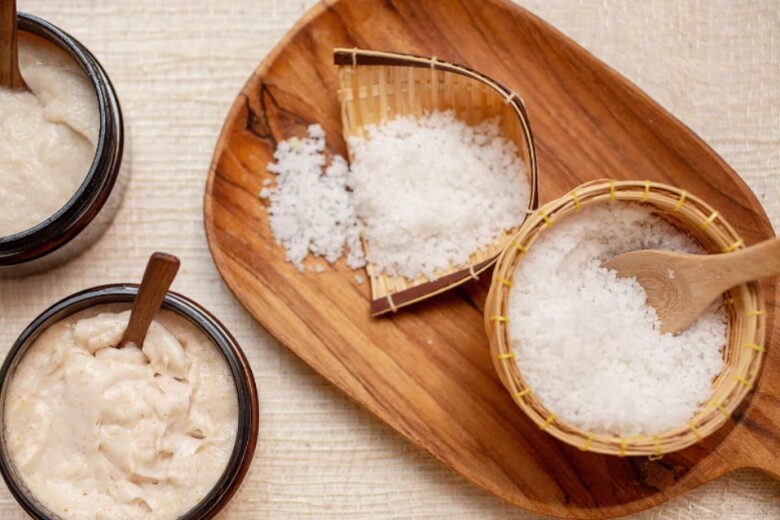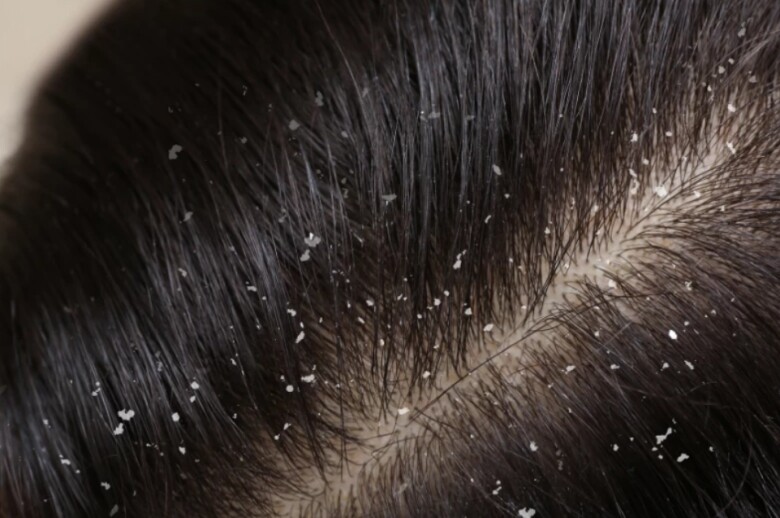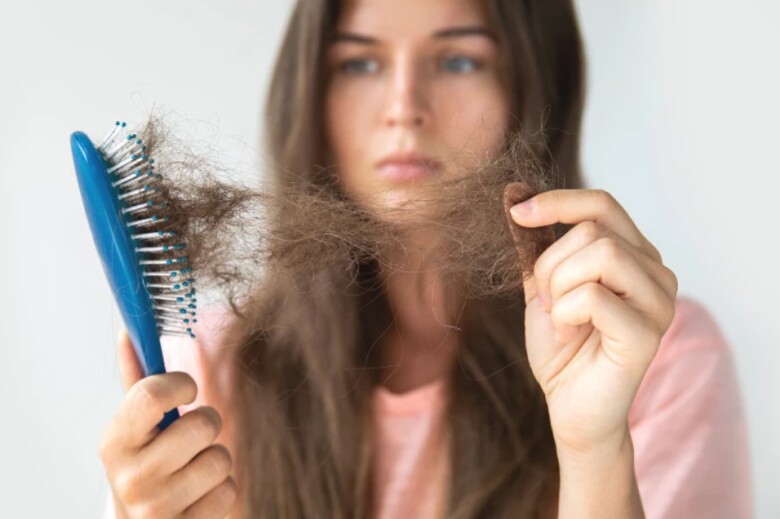Many people struggle with oily hair, finding that their hair becomes greasy and flat just a day after washing it. The idea of washing your hair daily is unappealing as it is time-consuming and tedious. However, a new hair washing method using a common kitchen ingredient, salt, has been circulating on social media, offering a potential solution to this issue.
According to online users who have experimented with this method, washing your hair with saltwater can keep it clean and non-greasy for up to five days. This approach has gained traction, with many individuals attesting to its effectiveness.
The Saltwater Hair Washing Method

The saltwater hair washing method has been a popular topic among online users, with many claiming its effectiveness in deep cleaning the scalp. (Illustrative image)
To try this method, start by preparing a basin of warm water at a comfortable temperature, neither too hot nor too cold. Add about two tablespoons of salt to the water, preferably natural sea salt or mineral salt, and stir until the salt is fully dissolved. Before using the saltwater solution, make sure to rinse your hair with regular warm water to remove any surface dirt, styling product residue, and to open up the hair follicles and scalp pores.
You can then either immerse your hair in the saltwater or slowly pour it over your scalp, gently massaging it into your scalp for 2-3 minutes with your fingertips to ensure the saltwater penetrates the hair follicles for a deep clean.
Afterward, thoroughly rinse your hair with warm water and follow up with a shampoo to ensure no salt residue is left on the scalp. It is important to remove all traces of salt as leaving it on for too long can dry out your scalp. Finish by blow-drying your hair, alternating between hot and cold air settings.
Benefits of Washing Hair with Saltwater
1. Deep Cleansing
Salt has absorptive and exfoliating properties. It not only removes excess oil, dirt, and dead skin cells from the scalp but also provides a deeper level of cleansing. This is especially beneficial for individuals with oily scalps as the saltwater can dissolve and absorb excess sebum, gently removing built-up dead skin cells and preventing clogged hair follicles.

Saltwater hair washing helps deep clean the scalp and absorb excess oil. (Illustrative image)
2. Oil Regulation
For those who struggle with greasy hair, the excess oil can form a thick layer that clogs pores. Saltwater hair washing helps regulate the oil production of the scalp, effectively reducing oiliness and keeping hair cleaner and fresher for longer. As the oily scalp condition improves, hair becomes more voluminous and doesn’t stick to the scalp, making it easier to maintain your desired hairstyle.
3. Anti-Dandruff
If you’ve been battling dandruff for a long time, consider trying the saltwater hair washing method. In addition to its deep cleansing and exfoliating properties, salt has natural antibacterial and antifungal properties that can inhibit the growth of bacteria and fungi on the scalp, thus improving dandruff issues. Salt also has anti-inflammatory properties that can help soothe itching and mild redness associated with dandruff.

Saltwater hair washing can help address dandruff issues. (Illustrative image)
4. Reduces Hair Fall
Saltwater promotes blood circulation and maintains the health of hair follicles, ensuring they receive adequate nourishment. This strengthens the hair roots and promotes long-term hair growth, reducing hair fall caused by weak or unstable hair.
Precaution: Avoid Overdoing Saltwater Hair Washing

Overusing the saltwater hair washing method can lead to drier and more sensitive hair. (Illustrative image)
While the saltwater hair washing method offers numerous benefits, it is important not to overdo it. Limit its use to once or twice a week as frequent saltwater washing can disrupt the scalp’s natural oil balance, leading to dryness and sensitivity. If you have thin or damaged hair, this method may not be suitable as saltwater can weaken hair elasticity and make it more fragile. Additionally, if you have any scalp wounds, avoid using saltwater as it may cause pain or slow down the healing process.
“Don’t Skip This Step: A Hair-Raising Tale of Terror for Your Tresses”
Hair care is an extensive and often challenging process for women. Many have tried various methods, from hair masks to oils and proper conditioning, yet their hair remains unruly and dull. The secret lies in remembering that the scalp, much like the face, requires exfoliation to stay healthy and promote hair growth.
3 Tips for Beating Greasy Hair That Are More Effective Than Dry Shampoo
A sleek and stylish hairdo can make or break your festive look. Imagine spending hours perfecting your makeup and choosing the perfect outfit, only to have your hair fall flat. But fear not! With these quick and easy hair hacks, you can ensure your locks are full of life and volume. Keep reading to discover how to revive your hair and keep it looking fabulous all day long.
The Ultimate Guide to Exfoliation: Achieve Summer-Ready Skin with These Simple Steps
The uneven, rough skin texture is a common concern for many women, and it’s time to take action. It’s crucial to understand that achieving smooth and radiant skin is not an unattainable dream. With the right skincare regimen and a few simple lifestyle changes, you can transform your skin’s appearance and boost your confidence. It’s time to embrace a holistic approach to skincare and uncover your skin’s natural glow. Stay tuned as we unravel the secrets to achieving flawless skin.





































